On Tuesday, 21 June 2016, the BBC World Service officially transmitted the 2016 BBC Antarctic Midwinter Broadcast–an international radio broadcast intended for a small group of scientists, technicians, and support staff who work for the British Antarctic Survey.
This is one of my favorite annual broadcasts, and I endeavor to listen every year. Once again, the SWLing Post called upon readers to make a short recording of the broadcast from their locale.
Below are the entries, roughly organized by continent and country/region, including reader’s photos if provided. I had planned to post these recordings by Sunday, but my travels interfered and I discovered an additional ten recordings in my inbox! (If I’ve somehow missed including your entry, please contact me; I’ll amend this post.)
So, without further ado….
The 2016 BBC Antarctic Midwinter Broadcast Recordings
Australia
SWL (Shortwave Listener): Rob Wagner
Location: Mt Evelyn, Victoria, Australia
Notes: [A] 12 minute video record of the broadcast that also demonstrates some tuning techniques and DSP facilities on the Yaesu FTDX3000. You can view the video below or by clicking here:
SWL: Paul Philbrook
Location: Adelaide, South Australia
Notes: Here are a couple of recordings from this mornings broadcast. Just had a quick listen before heading off to work and recorded these two with the IC-7300. Radio: Icom IC-7300 Aerial: Multi-band loaded dipole. 5985 Khz strength 5 readable, 6035 Khz strength 8 good readability, 7360 Khz no copy.
Click here to download recording 1 and recording 2, or simply listen via the embedded players below:
New Zealand
SWL: Bryan Clark
Location: Mangawhai, New Zealand
Notes: Listening in New Zealand, reception was not as good as last year.
Here are short audio files of the 3 frequencies. I used an EWE antenna aimed southeast, that is across South America, for the best signals. Receiver is a WinRadio Excalibur Pro SDR.
Europe
Austria
SWL: Christoph Ratzer
Location: Salzburg, Austria
Notes: Here my complete recording for you. Received at my remote station http://remotedx.wordpress.com in Salzburg, WinRadio G33 Excalibur PRO, Delta loop antenna with Bonito ML052 amplifier.
Click here to download the recording, or simply listen via the embedded player below:
Denmark
SWL: Willy Andersen
Location: Soeborg, Denmark
Notes: Here is my recording from 7360kHz on June 21. 2016. Very strong and clean signal. Vy 73 de Willy, OZ4ZT
Click here to download the recording or simply listen via the embedded player below:
France
SWL: Philippe
Location: L’Hôpital-Camfrout, France (few km south of Brest)
Notes: Very good conditions here, good sound. Equipment: Yaesu FT817ND + V inverted antenna and Yaesu Vx7r + original antenna (little stick on the radio). On both radios, reception: 59 / 59+
YouTube video of 5985 kHz broadcast.
YouTube video of 7360 kHz broadcast.
Ireland
SWL: Alan
Location: County Kildare, Ireland
Notes: 5,985 kHz Woofferton. Distance: 280km. Recorded from County Kildare, Ireland
with an Icom-718 and 20m Random wire on an Olympus vn-741pc.
Click here to download the recording as an MP3, or simply listen via the embedded player below:
Italy
SWL: Renato Feuli (IK0OZK)
Location: Valentano, Italy
Notes: Woofferton at 5.895 Khz AM
Time UTC 21.33
Signal Report R/S R5 S 9+15 Db Very Good signal and audio
Equipement:
RTX JRC 245 and Windom antenna
To Ascension at 7.360 Khz AM
Time UTC 21.33
Signal Report R/S R5 S 9+10 Db Very Good Signal and audio
Equipement:
Receiver JRC NRD 545 Dsp and Long-Wire antenna
Click here to watch video via YouTube.
Woofferton and Ascension at 21.45 UTC:
Click here to watch video via YouTube.
To Dhabayya at 6.035 Khz AM
Time UTC 21.38
Signal Report R/S R3 S 4/5 Low Signal and many QRM and QSB
Equipement:
Receiver JRC NRD 91 and Long-Wire antenna
Click here to watch video via YouTube.
Below, please find an audio file for Ascension at 7.360 Khz AM 21.40 UTC:
Please check out Renato’s radio blog by clicking here.
SWL: Joseph
Location: Ponza island, Italy
Notes: I am Joseph in Ponza island, Italy, with pleasure I send you a video of the Antarctic Midwinter 2016 recorded yesterday night with my old smartphone … great about the 5985 and 7360 frequencies, very poor reception on 6035, I used the 3 receivers Yaesu vr5000 connected on a discone antenna “Midland full band”, AOR ar 3030 and Kenwood R1000 on antenna “Mini Whip”.
Click here to watch via Vimeo.
SWL: Davide Borroni
Location: Saronno, Italy
Notes: 21 June 2016 at 2130-2200 UTC on 7360 KHZ AM. I listened to the BBC broadcast with SINPO 54444. I listened to beautiful music and talk. Thanks for show ! I used my R&S ESH3 (see above) with my magnetic loop 2 meter diameter antenna.
Click here to download the recording, or simply listen via the embedded player below:
David also included the following videos featuring his Siemens E401 and Racal RA 1778:
SWL: Alessio Proietti
Location: Rome, Italy
Notes: Receiver: Yaesu FRG 7700 Antenna, 10mt rybakov, Frequency: 5985 kHz AM, Details: nice reception today S9+40 with a light QSB.
Click here to download the recording, or listen via the embedded player below:
SWL: Andrea Borgnino
Location: Rome, Italy
Notes: BBC Antarctic Midwinter Broadcast 2016 – 5985 khz 21/6/2016 recorded in Roma Italy. Click here to listen on SoundCloud.
SWL: Adalberto Maria Tassi
Location: Rome, Italy
Notes: 5985 kHz, SINPO 55544, Icom IC-R71e, Antenna: Wellbrook ALA-1530
Click here to view the video on Vimeo.
SWL: Marc Vittorini
Location: Favria, Italy
Notes: Frequency of 5985 KHz, SINPO 43333, Receiver RTL Dongle +, SDRSHARP, Antenna: homemade longwire
Click here to download or simply listen via the embedded player below:
SWL: Gabriele Somma
Location: Roccapiemonte province Salerno, Italy
Notes: Frequency 5.985 Khz AM, S.I.N.P.O 5.4.5.5.5 SIGNAL S9+30+,
Receiver Icom PCR 1500:
Antenna ALA 1530 LN:
Gabriele includes the following video of his IC-PCR1500 tuned to the broadcast:
SWL: Rotunno Vincenzo
Location: Italy
Notes: I0550/RM, 5.985.00 MHz AM, Sr 59+40, Kenwood ts 870 ant random
Northern Ireland
SWL: Jordan Heyburn
Location: Northern Ireland
Notes:
BBC World Service Special Broadcast to Antarctica 5985khz received in Northern Ireland using a SDR Play RSP & Wellbrook ALA1530LN Active Loop Antenna. Click here to view on YouTube.
Poland
SWL: Chris Ditrich
Location: Poland
Notes: Reception on 5985 kHz and 7360 kHz was very good 59 – 58, however reception on 6035 kHz was not that good, signal was there but not much readable
5985 kHz
Click here to listen via YouTube.
Click here to view on YouTube.
7360 kHz
Click here to view on YouTube.
Russia
SWL: Dmitry Elagin
Location: Saratov, Russia
Notes: I accepted BBC Antarctic Midwinter Broadcast in Saratov, Russia. I made video record by means of my SDRPlay.
I also listened to the test program on June 14.
I published my supervision here – http://freerutube.info/2016/06/22/e-qsl-bbc-antarctic-midwinter-broadcast-14-iyunya-2016-goda/.
[Dmitry also included the following YouTube video:
United Kingdom
SWL: Chris Inwood
Location: Conrwall, England
Notes: [R]ecorded on 5.985 MHz. This frequency was by far the best quality. I was able to copy 7.365 here but there was slight QSB and some interference from an adjacent broadcaster HCJB. 6.035 was not heard at all neither was 9.720 MHz. Very best wishes and thanks, I always look forward to my email.
Click here to download the MP3, or simply listen via the embedded player below:
SWL: Mark Hirst
Location: Basingstoke, Hampshire
Notes: Thanks for alerting shortwave listeners to the British Antarctic Survey broadcast. It felt very poignant listening to a broadcast aimed at such a small number of people, with the voices of their loved ones being launched around the world.
I was able to record the broadcast from only 100 miles away from the Woofferton transmitter, so needless to say the quality and strength was very good. I imagine hearing that broadcast buried in the noise from far away with those happy birthday songs and best wishes must have been very emotional for its intended audience.
I enclose a short segment from my 30 minute recording, plus a photo (above) taken the next day of my set up (it was dark at the time of the recording).
My recording location was Basingstoke, Hampshire in the UK – locator IO91LH 20HH
[Note that Mark also recorded the full 30 minute broadcast which you can download by clicking here.]
SWL: Dean Allison
Location: Bedlington, Northumberland, England
Notes: I have attached an audio file of the BBC transmission to Antarctica. My location is Bedlington, Northumberland, England, about 100 feet above sea level, using a Kenwood R5000 receiver and a 30 feet longwire antenna about 12 feet off the ground. This was the 5985 kHz transmission.
Click here to download or simply listen via the embedded player below:
SWL: Jerry Rhys
Location: Surrey, England
Notes: Attached are two recordings of today’s BBC Antarctic Broadcast made between
2130 and 2150z. The first recording was made using AM mode with 8 kHz bandwidth on 5985 then 7360, followed by 6035. The second recording was made using SAM mode with 10 kHz bandwidth on 7360, 6035, and 5985.
The best signal was on 5985, 7360 was weak but readable, on 6035 I could detect a carrier and occasional modulation – on this frequency there was also interference from a digital transmission on 6037. Nothing heard on 9720.
I was using a RF Space SDR-IQ Receiver, and a Wellbrook ALA1530S Loop
Antenna installed in my loft. Many thanks for the SWLing Post, always an enjoyable read!
SWL: Alan (G4TMV)
Location: northern England
Notes: Reception of this special broadcast was excellent here in northern England on 5985 kHz. It was an enjoyable broadcast again, but Babcock weren’t wasting any electricity on it, it came on and went off again almost spot on 2130 and 2200!
Click here to download, or simply listen via the embedded player below:
SWL: Dom B
Location: Newcastle Under Lyme, England
Notes: I live streamed the midwinter broadcast on my Tecsun PL-380 from my location in Newcastle Under Lyme in the UK
Here is the link: https://www.youtube.com/watch?v=EQXgYSDjTkI
SWL: Lawrence Beedle
Location: Manchester, England
Notes: Here is my recording of the mid winter broadcast by the BBC 21st June 2016. Tecsun PL660 telescopic aerial, indoors, sat at kitchen table in a house in Manchester, England, UK. 5985khz good reception. 6035 kHz not as strong, 7360 kHz no reception. Recorded on iPhone next to speaker on radio. 36 seconds.
Click here to download the MP3, or simply listen via the embedded player below:
SWL: David Mappin
Location: Filey, England
Notes: Just thought I would let you know how I got on with the BBC WS broadcast to Antarctica. I used my Icom IC-R75 receiver and a Wellbrook ALA1530 inside the house. 5985 kHz was very strong with me here on the east coast of the UK (NVIS propagation?). Nothing heard on 6035 or 9720 but a weak signal on 7360. Attached (above) is a photograph of my listening post. This is a link to a YouTube video of the start of the broadcast. My very best regards and thank you for your excellent website.
SWL: Cap
Location: N.W. Scotland
Notes: Here is my attempt last night with SDR screenshot attached, Elad FDM-S1 with homebrew mini Mag Loop (<250mm dia) sitting on my bookcase. No doubt there will be better signals/recordings than mine as the signal was really strong from WOF and considering my setup is 100% indoors, it came out ok. External antennas don’t last here as I am by the sea and regular 100mph+ storms in the winter is too much hassle.
Click here to download this recording as an MP3, or simply listen via the embedded player below:
North America
Canada
SWL: Richard Langley
Location: New Brunswick
Notes: Tecsun PL-880 receiver with a Tecsun AN-03L 7-metre wire antenna in AM mode with 5.0 kHz RF filtering at the back of my yard. The photo [of Richard’s outdoor portable listening post] was taken during some other recordings last year.
Click here to listen to Richard’s recording, or simply use the embedded player below:
Click here to listen to Richard’s full half-hour recordings on the SRAA.
SWL: Thomas Witherspoon
Location: Saint-Anne-de-Beaupré, Québec
Notes: I traveled to an RFI quite spot in the parking lot of the Basilica in St.-Anne-de-Beaupré, Québec. Click here to read a full post about my set-up and conditions. Note that I used a Sony ICF-SW55 receiver (above), perched on top of my vehicle and tuned to 7360 kHz.
Click here to download the full recording of the broadcast, or simply listen via the embedded player below:
Unites States
SWL: Dan Hawkins
Location: Davis, California
Notes: Here is my YouTube video. I’m using both the Sangean and Hammarlund receivers to hunt down the BBC Midwinter Antarctic Broadcast. Probably a somewhat different result than on most of the videos, but probably typical of West Coast propagation at these frequencies and times.
SWL: Nace Magner
Location: Bowling Green, Kentucky
Notes: Please find attached a video of my reception of the BBC broadcast. Unfortunately, a thunderstorm passed through about 10 minutes prior to the video and the audio is dominated by lightning-related crashes. However, the BBC signal can be heard periodically. My location was on a university campus in Bowling Green, Kentucky, which is about 50 miles north of Nashville, Tennessee. I received the signal using a Tecsun PL-660 and its whip antenna. I enjoy the SWLing site. Best regards, Nace Magner (KW4LY)
Wow–Thank you!
Once again, many thanks to all of you who submitted your recordings of the BBC Midwinter Broadcast! We’ll be sharing this post with both the British Antarctic Survey and the BBC World Service. And to all of you, from the SWLing Post: Happy Midwinter! Happy Summer/Winter Solstice!

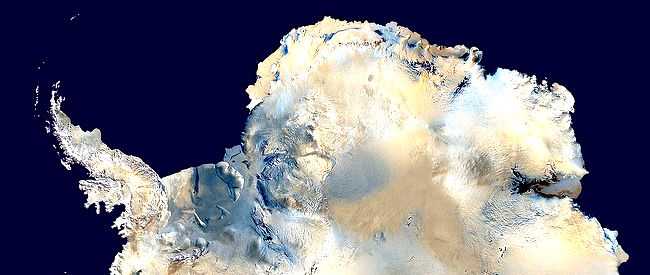
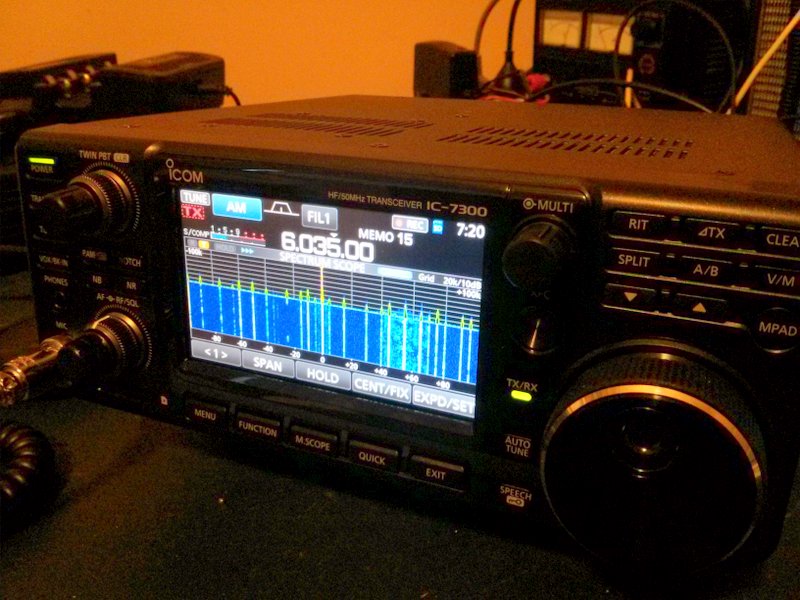
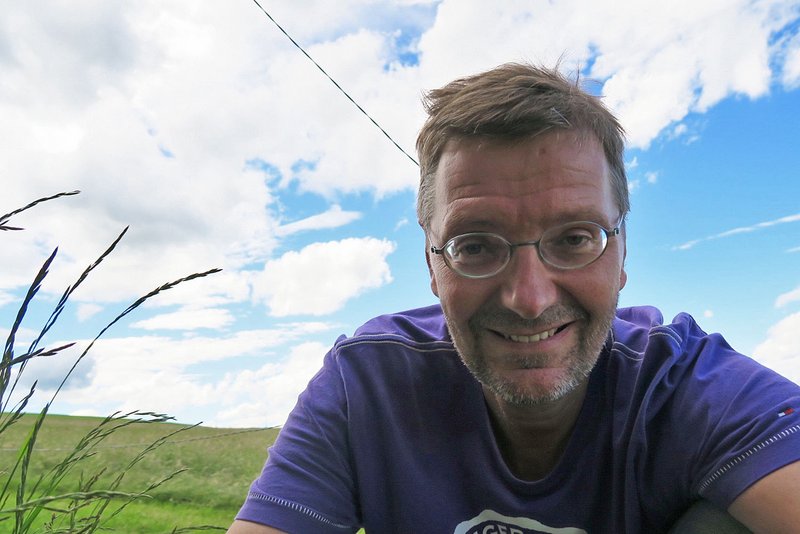
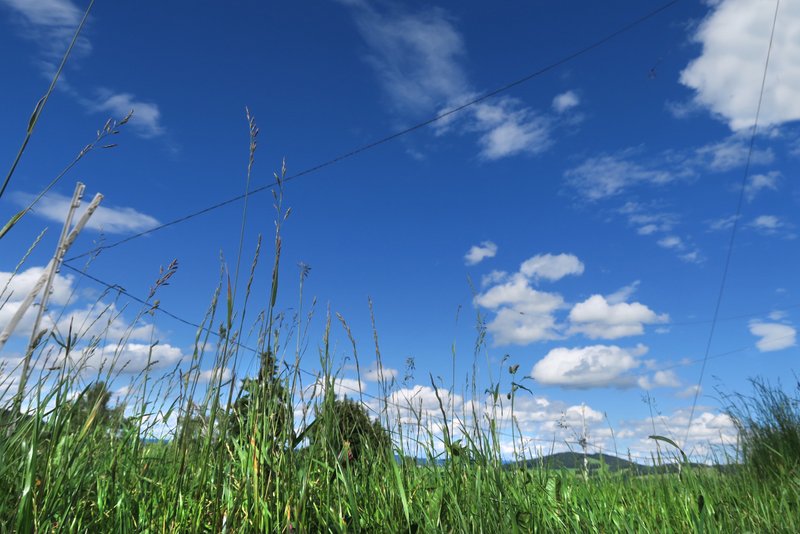
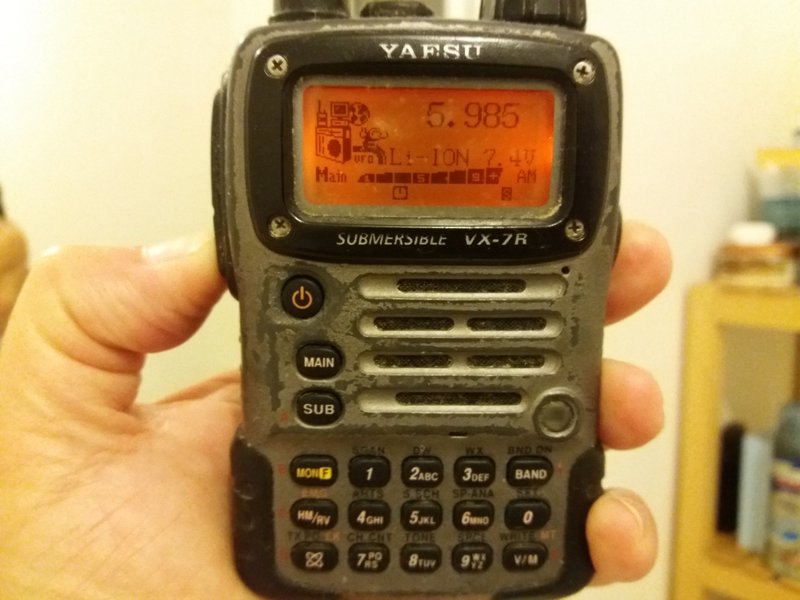
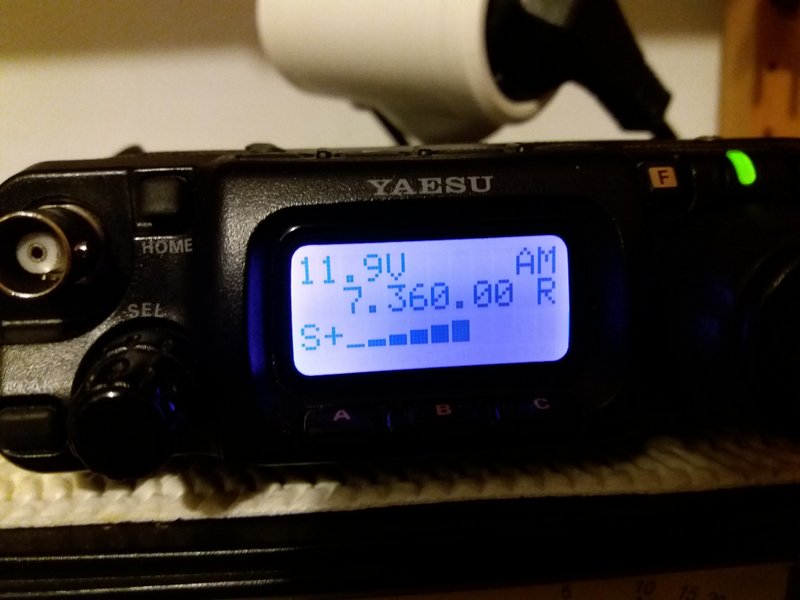
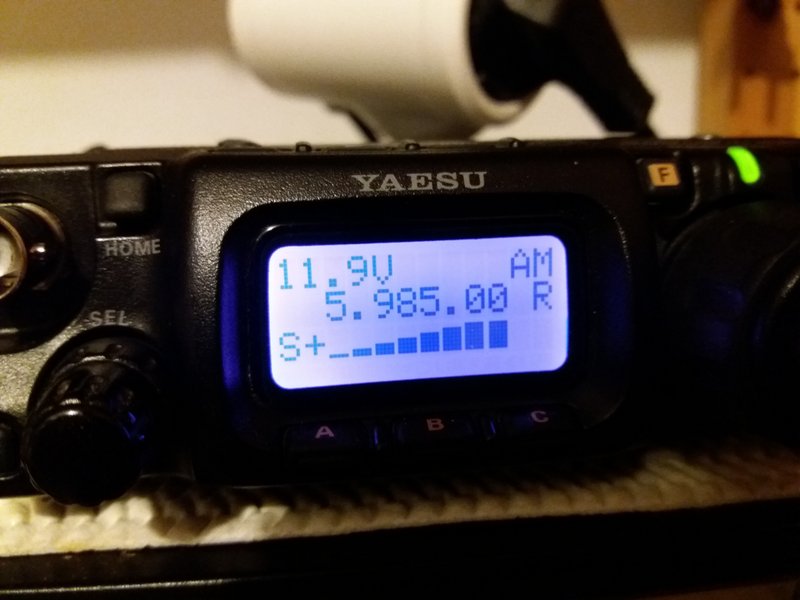
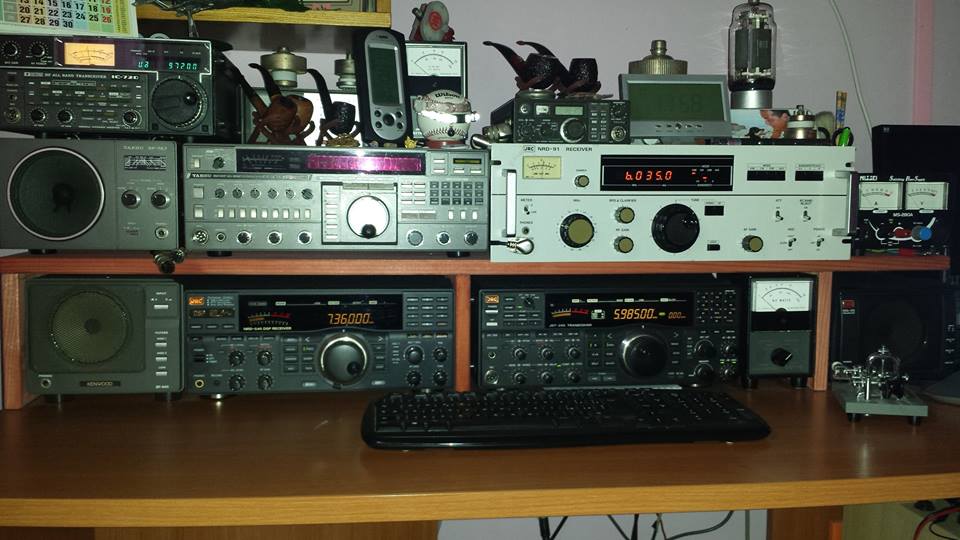
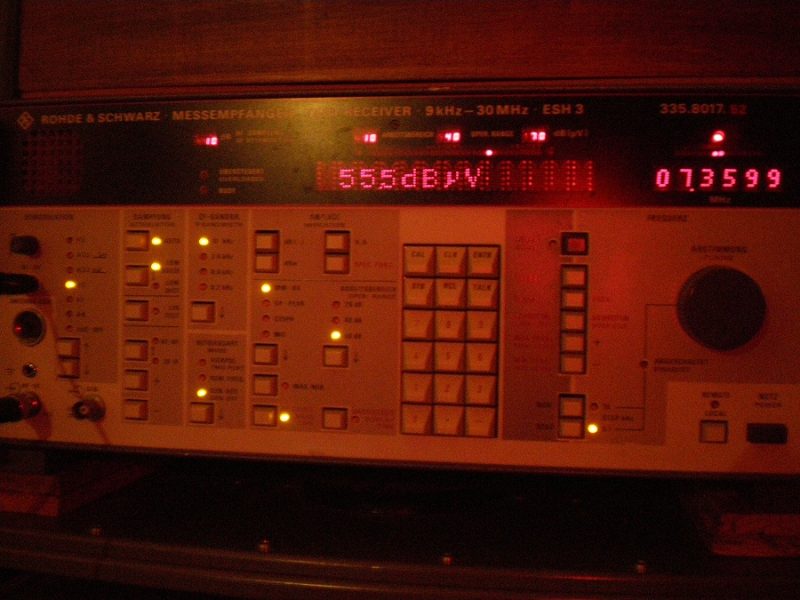
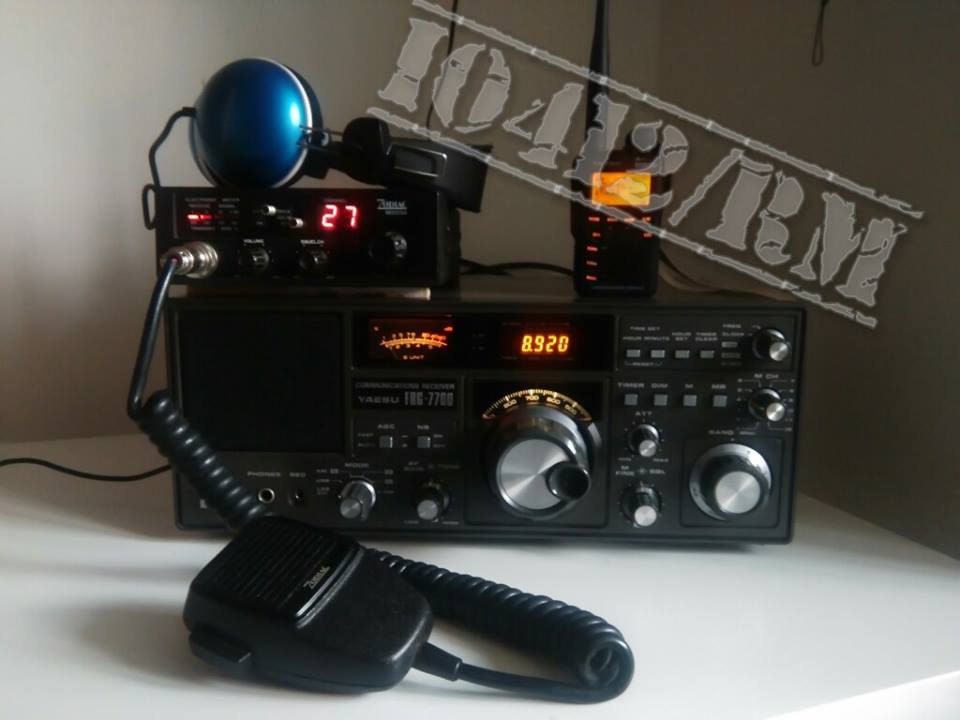
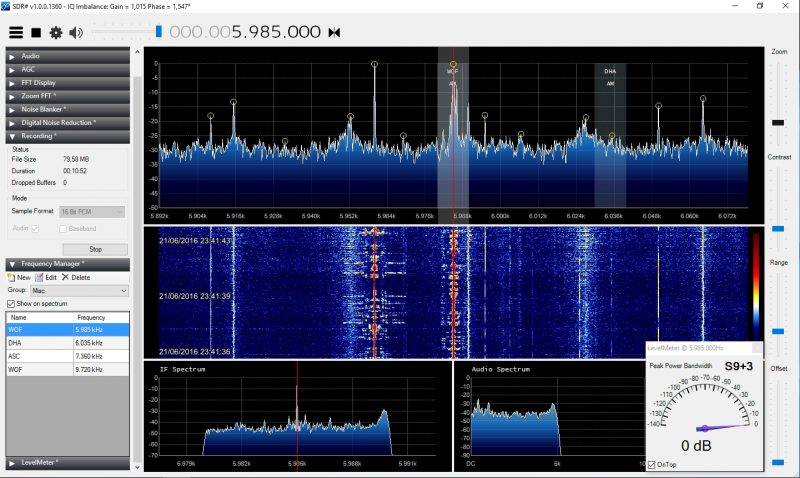
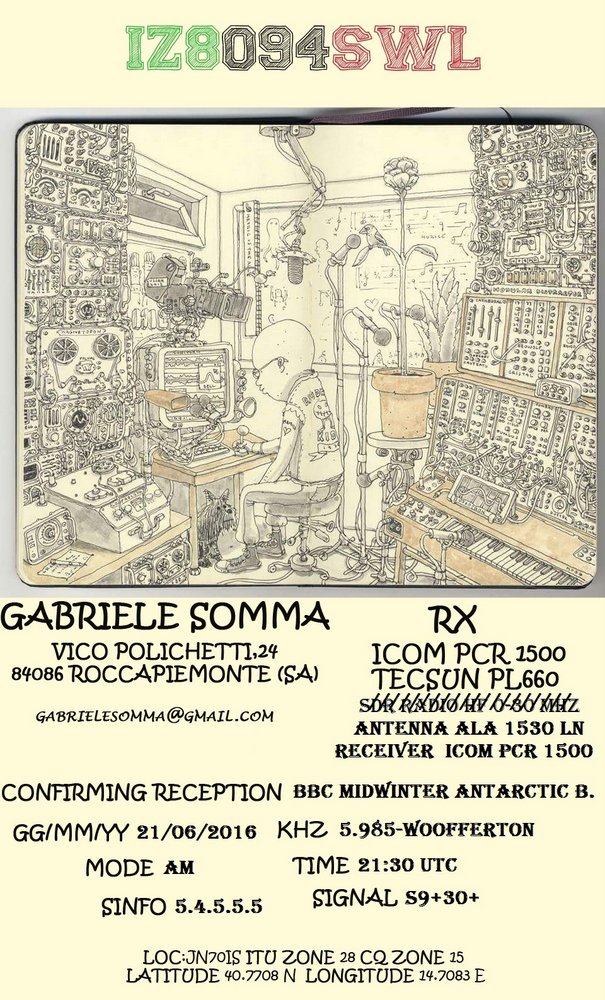
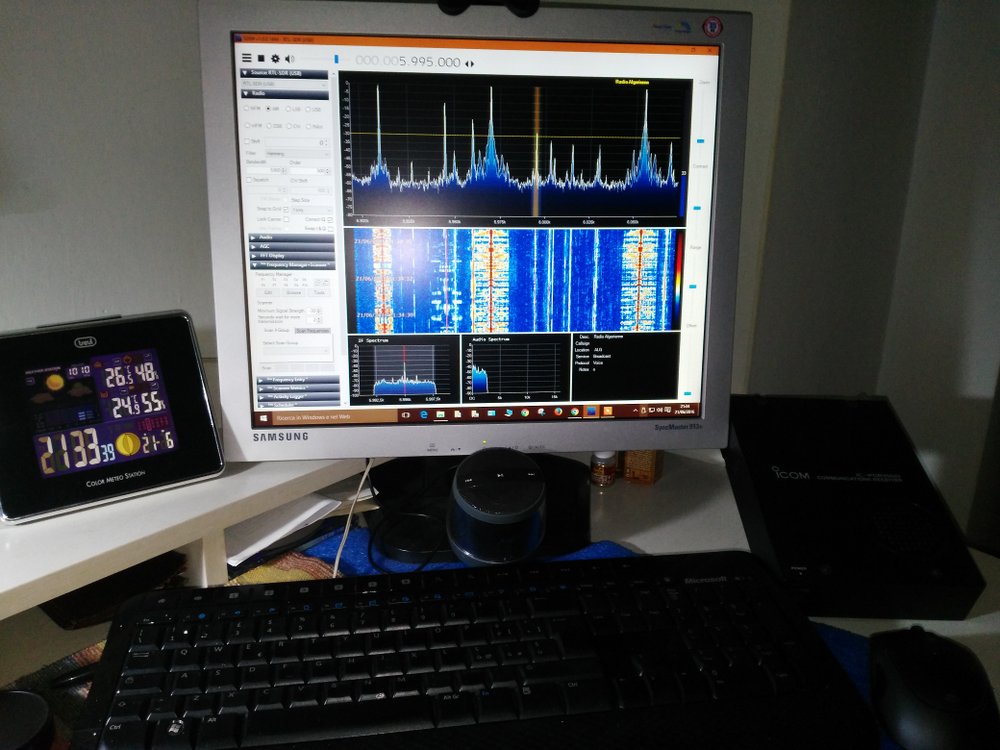
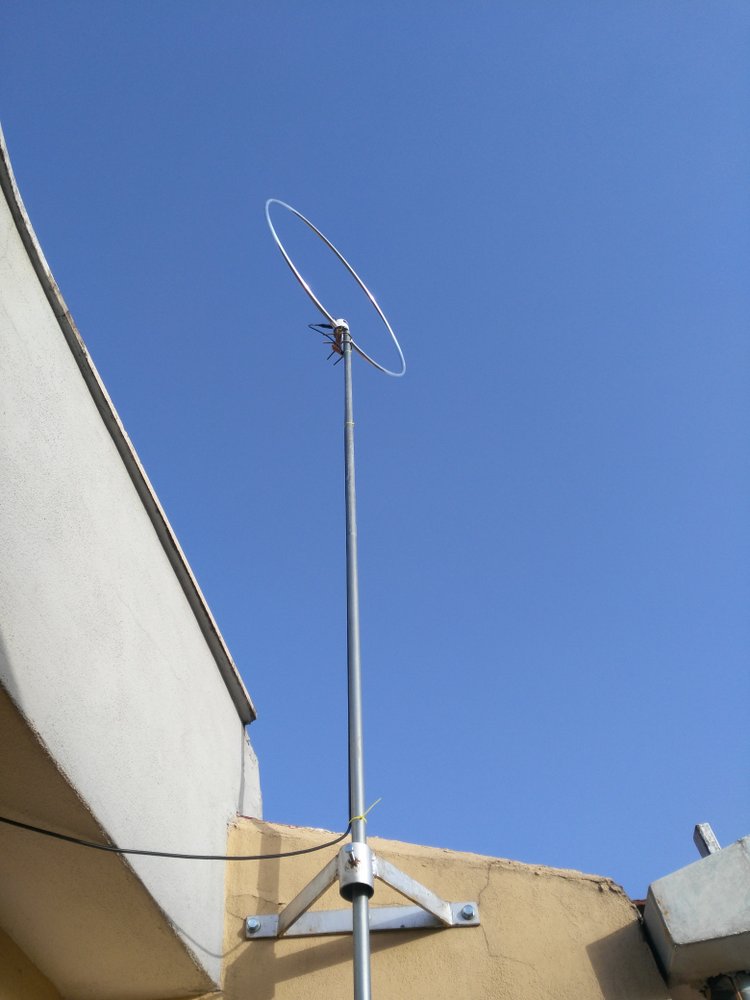
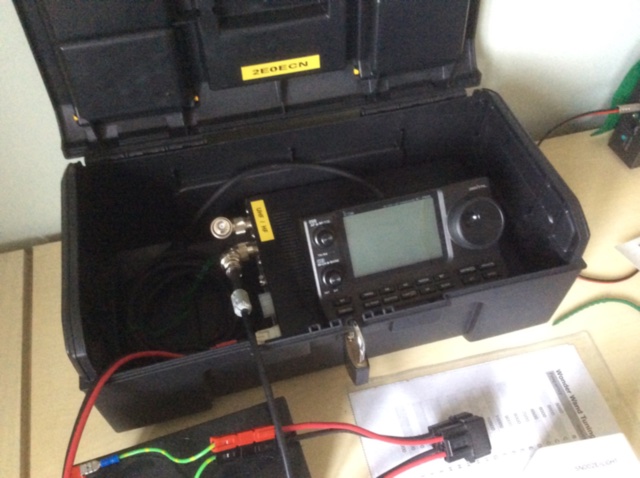
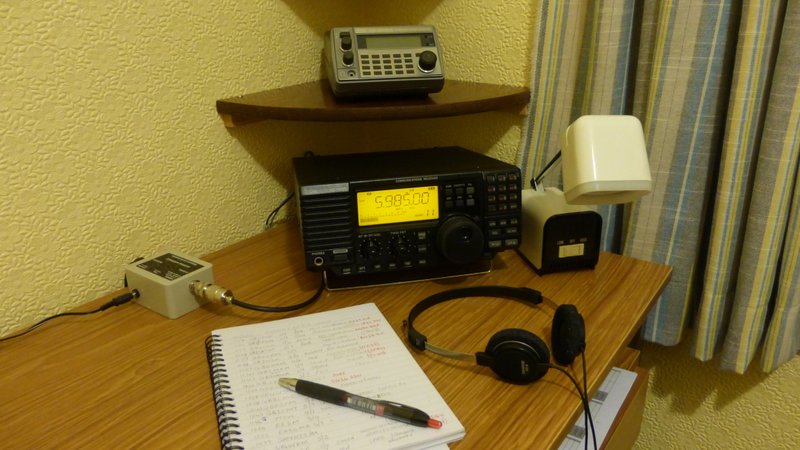

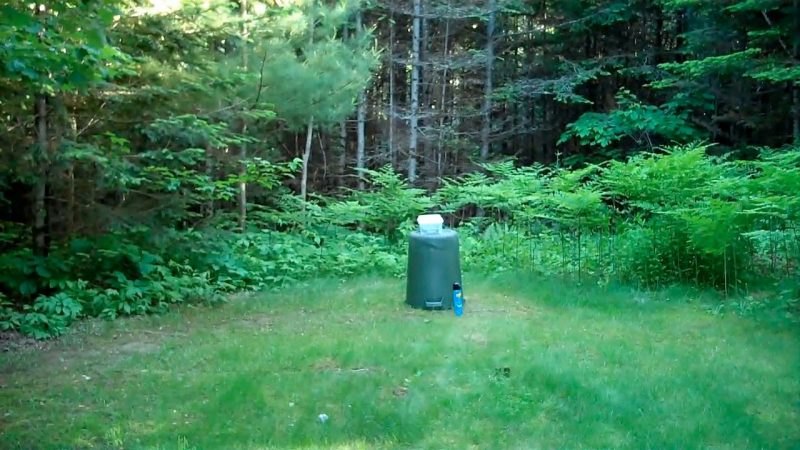
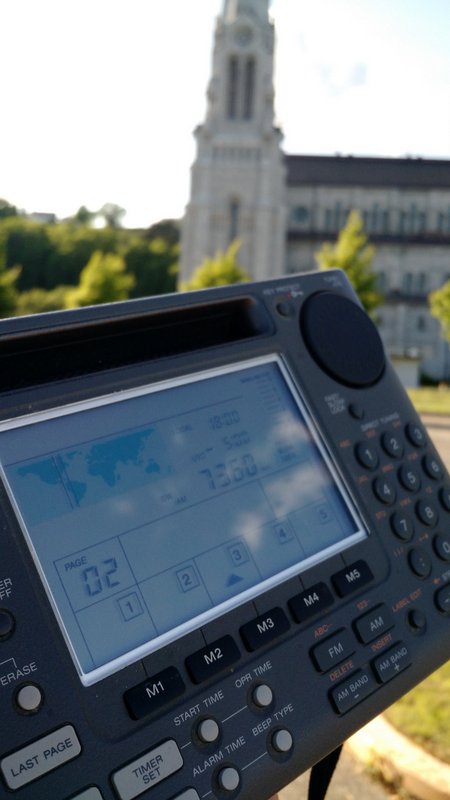
So can someone fill me in on where the broadcast(s) were transmitted from? I assumed it was being broadcast from Antarctica, so I did not even try for it. I assumed it would be a hard DX catch, along the lines of the ‘Radio St. Helena Day’ broadcasts.
The 5985kHz broadcast was from Woofferton in England, beaming to the British Antarctica Survey on Antarctica. It’s a special half hour broadcast by the BBC every year with messages from friends and family to help boost morale to those brave souls working with the British Antarctic Survey.
I could not hear the 6035kHz broadcast on my Elad FDM-S1 SDR, I recording a wide segment at the time, will need to check again though.
5985kHz was by far the best frequency as it was free from interference.
Frequencies/sites used during the broadcast.
7360 kHz, Ascension, 207 degrees (Ascension Island)
5985 kHz, Woofferton, 184 degrees (England)
6035 kHz, Dhabayya, 203 degrees (United Arab Emirates)
This is very interesting, what an amazing selection. Last year I could hardly hear anything in the 49 metre band and the best signal for me was from Ascension Island on the 41 metre band. I thought this might be because London was in Woofferton’s skip zone, but then again, this ought to happen on higher frequencies, and lots of UK folk in your post report the 49MB signal as being the best, so perhaps the urban noise levels are just much higher in that frequency range. Still, here is my catch, with all the anti-QRM gear engaged: https://www.youtube.com/watch?v=7bvcIn1pFpM
Wow – what a selection of kit – great to see a couple of SDRplay RSPs in there 🙂
Thanks for putting this together, Thomas. Seems not too many of us were listening in North America. Perhaps some more Canadian and U.S. recordings will yet surface. Did anyone catch the beginning of the broadcast on 6035 kHz? I’m interested to see if on that frequency they started the program at the very beginning.
On 5985 kHz, it began:
“BBC World Service in London calling Antartica.”
On 7360 kHz, it began:
“Calling Antartica.”
The program actually begins with (have a listen at http://www.bbc.co.uk/programmes/p03z1gbt):
“This is the BBC World Service in London Calling Antartica.”